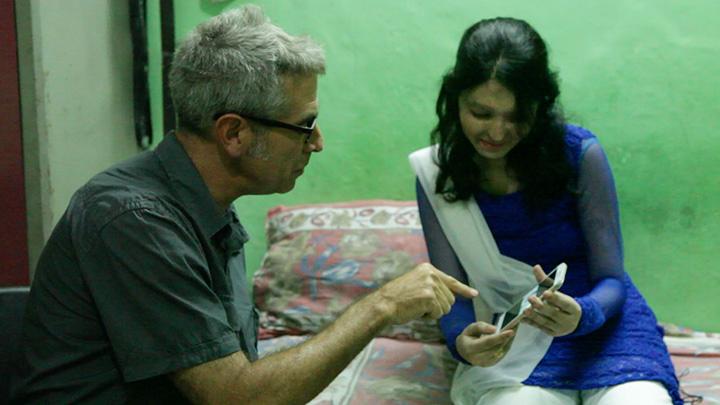Reshma Quereshi says it hurts to brush her hair. Her skin feels tight and painful, like someone pouring boiling water on her “that never stops boiling.” Between interview questions, we turn the fan on in her cramped Mumbai apartment. It’s hot, and we’re relieved when the air starts to move around us.
Reshma is relieved, too. Sweat irritates her skin.
Last year, Reshma traveled north to the town of Allahabad to stay with her sister. It was there that her brother-in-law got angry with her and poured sulphuric acid on her face. It was easy enough for him to do. A liter of acid costs as little as 33 cents in India.
oembed://https%3A//www.youtube.com/watch%3Fv%3D-MhbULUd-KE
Reshma Quereshi’s has been working alongside the NGO Make Love Not Scars to launch a series of make-up tutorials designed to end the sale of concentrated acid in India.
In the year since her attack, Reshma has had seven reconstructive surgeries. She lost her left eye in the attack, but the doctors left a small hole for her tears to escape, she says.
Reshma is one of an estimated 1,000 acid attack victims in India each year. Since many women don’t report their cases to police for fear of further retaliation, Acid Survivors Trust International says that number is actually much higher.

As part of our #HerRights series, The World’s Marco Werman explores the issue of acid attacks in India through 18-year-old Reshma, who is now the face of a creative national campaign to ban the sale of acid in India.
Follow #HerRights and @womenslives on Twitter and Facebook for the full multimedia story “Face of Courage” next week on The World.